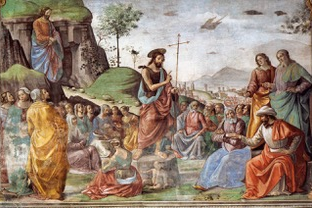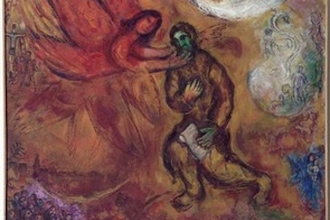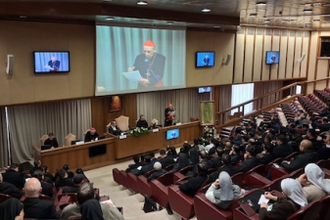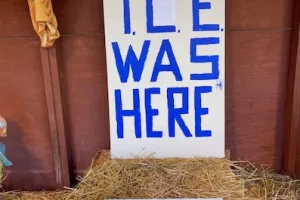Sunday Reflection with Canon Robin Gibbons: 21 July 2024
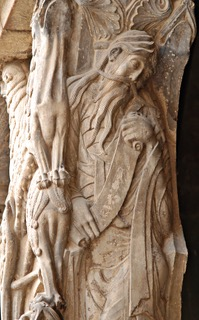
Moissac - Jeremiah
16th Sunday in Ordinary Time
Woe to the Shepherds
The opening word of our first reading from Jeremiah is dramatic, 'Woe' but not woe to us all, Jeremiah directs God's word against the corrupt shepherds.
"Woe to the shepherds who destroy and scatter the flock of my pasture-oracle of the LORD". (Jer 23:1)
Who are these shepherds? Obviously not those who look after the flocks in the pasture lands or mountain sides, they do not lead people, so it is a category of leaders who exercise some of the qualities of shepherding, such as responsibilities for caring and providing sustenance for their flocks, for keeping order and peace within the flock itself including tending and healing sick animals, taking a proactive approach in defending and protecting the sheep against against attackers, More than that it is also involves selflessness, of going out of their way to search for any animals that have gone astray, and rescuing those who are in danger. The shepherd is expected to act for the well-being of all.
But who are these shepherds Jeremiah has to faced down with God's warning?
They are the descendants of King David, Kings and rulers of Judah who have not lived up to the example of justice set before them as their task :" This is what the Lord says to you, house of David:
"'Administer justice every morning;
rescue from the hand of the oppressor
the one who has been robbed."(Jer 21:12)
Instead these people have let injustice, inequity and oppression become the normal pattern of behaviour in the land and now shape the manner of relationship and life of God's people. In this passage God is acting out of compassion for an intolerable situation. Divine judgment is presented as a necessary response to this evil mess.
God provides a way
However the interesting part of the denunciation of these evil doers in not that God's wrath will be inflicted on each of them as the result of the intended consequences of their actions, but rather God decides to take matters completely over and lead the people elsewhere under the oversight of new shepherds:
"I myself will gather the remnant of my flock from all the lands to which I have banished them and bring them back to their folds; there they shall be fruitful and multiply.
I will raise up shepherds for them who will shepherd them so that they need no longer fear or be terrified; none shall be missing-oracle of the LORD." (Jer 23:3,4) IThis passage has as it future historical focus the Israelites exile in Babylon, but on another level it is a reminder that the call of God to shepherd and guide others is not dependent on status, wealth, upbringing or of intellectual acumen.
Shepherds and the Church
We use the image of shepherd to describe the ministry of the ordained in the Church, but that is not the only image, all of us have part of that task because of our baptismal commitment to be as Christ for others, in living out his commandments of service and love. If anything whilst we might at times focus on the role of the ordained, we need to remind ourselves this is not a higher way of being a Christian, rather it should (we hope) be identified with the kenosis of Christ, who in serving others descends to the level of slave-in other words ministry in that sense of formal, ordained or even instituted lay ministry, is not 'bigging up' but rather ' dumbing ourselves down' so that we may remain on equal terms, in open humility, with the 'least of my brothers and sisters' . And, yes, that 'Woe' of God's voice through Jeremiah, needs to be heard often and meditated upon in the silence of our inner room! Paul gives us the words we need at this point in our reflection: "For he (Christ) is our peace, he who made both one and broke down the dividing wall of enmity, through his flesh, abolishing the law with its commandments and legal claims, that he might create in himself one new person* in place of the two, thus establishing peace, and might reconcile both with God, in one body, through the cross, putting that enmity to death by it." (Eph 2: 14-16) This here is the work of the 'Good Shepherd' continued on in each one of us.
To explore new ways
If we have any doubt that God moved the task of shepherd from the hands and lives of the powerful, the faith we have in Our Lord the Christ should disabuse us of any notion that leadership in our Christian community should be based in power. We know it often is, but that is a distortion, this power, given on trust by God, also has to be accountable, and the shepherds are not only accountable to God, but to the sheep. The Gospel gives us the pointers to a way of living out true shepherding if only we are courageous enough to do it.
Laid before us this Sunday, Mark shows us an exhausted group of disciples who have worked hard to preach, teach and care for the people. Jesus does not demand they carry on, in fact sensing their need he sends them to be by themselves, to reflect, recharge and perhaps learn from their experiences-but the demands of the people are great . What happens next is perhaps the unspoken challenge of our age. Our ministries are full of people that can get burnt out by the demands laid on them. Too often a pious misunderstanding suggest that obedience to the `Lord demands we go on until we bust! But that is not what we find here. Instead Jesus makes sure that those who shepherd are also taken care of , and removes from them the very great danger of co-dependent relationships . Mark puts it this way : "When he disembarked and saw the vast crowd, his heart was moved with pity for them, for they were like sheep without a shepherd; and he began to teach them many things"(Mk 6:34) Christ himself supplies the relief shepherd, but who are they for us?
Once we realise that the next portion of the Gospel is the feeding of the five thousand a different approach suggests itself, Christ is calling us to look again at ministry and shepherding, and certainly not exclusively in terms of the ordained institutional ministries of Holy Orders-rather as in the story of the five thousand, the moment dictates the need, and a flexible more prophetic ministry of charity, care, and concern, rises gently before us. Maybe we need as individuals and as members of the Church to take our reflective time out, and to listen not only to the "woe' of Jeremiah's God, but to the voice of the Christ speaking in our time!
LECTIO
Psalm 23
The LORD is my shepherd;
there is nothing I lack.
In green pastures he makes me lie down;
to still waters he leads me;
he restores my soul.
He guides me along right paths
for the sake of his name.
Even though I walk through the valley of the shadow of death,
I will fear no evil, for you are with me;
your rod and your staff comfort me.
You set a table before me
in front of my enemies;
You anoint my head with oil;
my cup overflows.
Indeed, goodness and mercy will pursue me
all the days of my life;
I will dwell in the house of the LORD
for endless days.
Extract from a sermon to Pastors by St Augustine, commenting on Ezekiel and St Paul to call out pastors and shepherds who feed themselves instead of the flock. (Sermo 46, 3-4: CCL 41, 530-531).
Let us consider the unflattering words of God which Scripture addresses to shepherds who feed themselves and not the sheep. You consume their milk and cover yourselves with their wool; you kill the fatlings, but my sheep you do not pasture. You have failed to strengthen what was weak, to heal what was sick, and to bind up what was injured. You did not call back what went astray, nor seek out what was lost. What was strong you have destroyed, and my sheep have been scattered because there is no shepherd.
PASTORS WHO ARE SHEPHERDS WHO FEED THEMSELVES
This is spoken to the shepherds who feed themselves and not the sheep; it speaks of their concern and their neglect. What is their concern? You consume their milk and cover yourselves with their wool. And so the Apostle asks: Who plants a vineyard and does not eat from its fruit? Who pastures a flock and does not drink from the milk of the flock? Thus we learn that the milk of the flock is whatever temporal support and sustenance God's people give to those who are placed over them. It is of this that the Apostle was speaking in the passage just quoted.
Although he chose to support himself by the labour of his own hands and not to ask for milk from the sheep, the Apostle did say that he had the right to receive the milk, for the Lord had established that they who preach the Gospel should live from the Gospel. Paul also says that others of his fellow apostles made use of this right, a right granted them, and not unlawfully usurped. But Paul went further by not taking what was rightfully his. He forgave the debt, whereas the others did not demand what was not due them. Therefore Paul went further. Perhaps his action was foreshadowed by the Good Samaritan who, when he brought the sick man to the inn, said: If you spend any more, I will repay you on my way back.
THE MILK OF SHEEP OF THE FLOCK
What more can I say concerning those shepherds who do not need the milk of the flock? They are more merciful; or rather, they carry out a more abundant ministry of mercy. They are able to do so, and they do it. Let them receive praise, but do not condemn the others. The Apostle himself did not seek what was given. However, he wanted the sheep to be fruitful, not sterile and unable to give milk.



